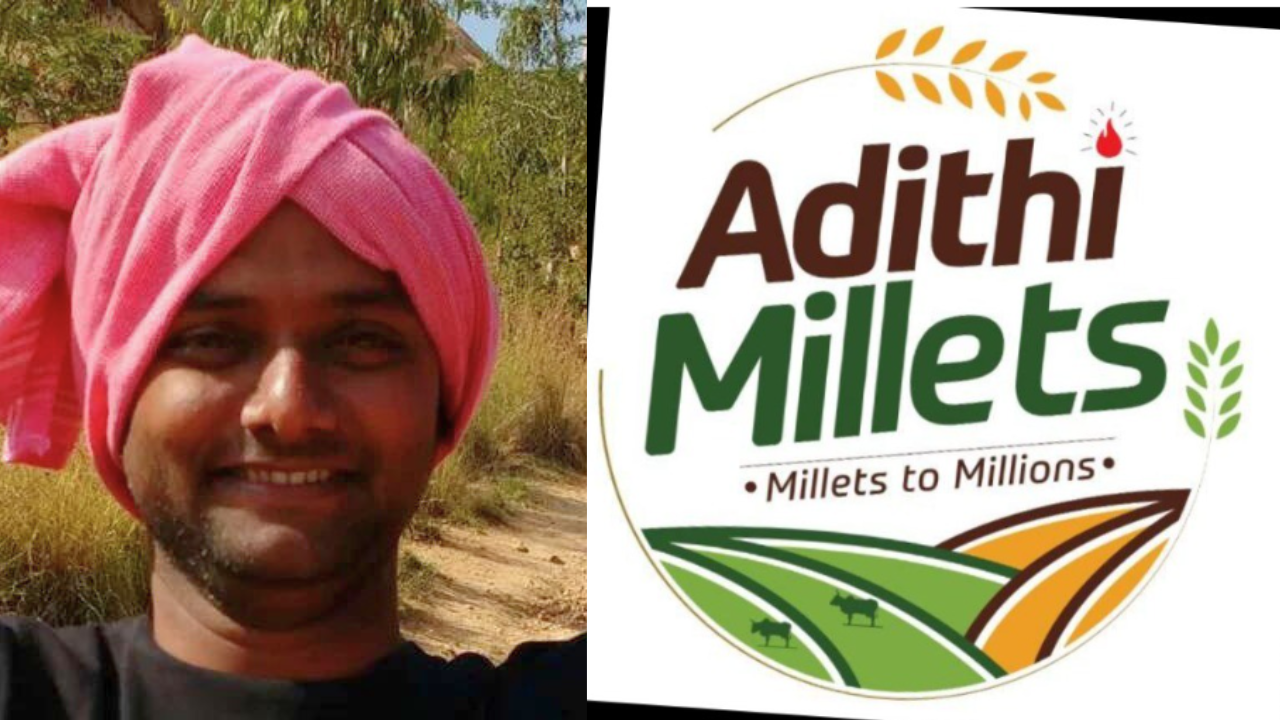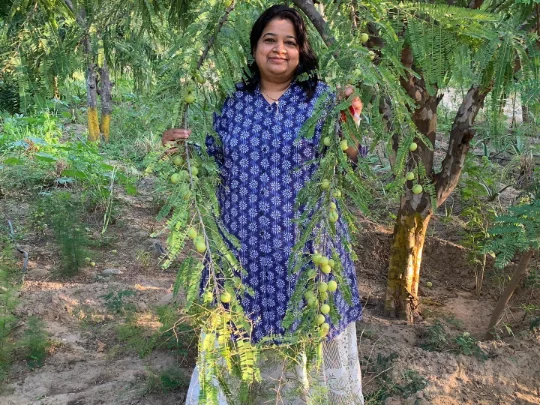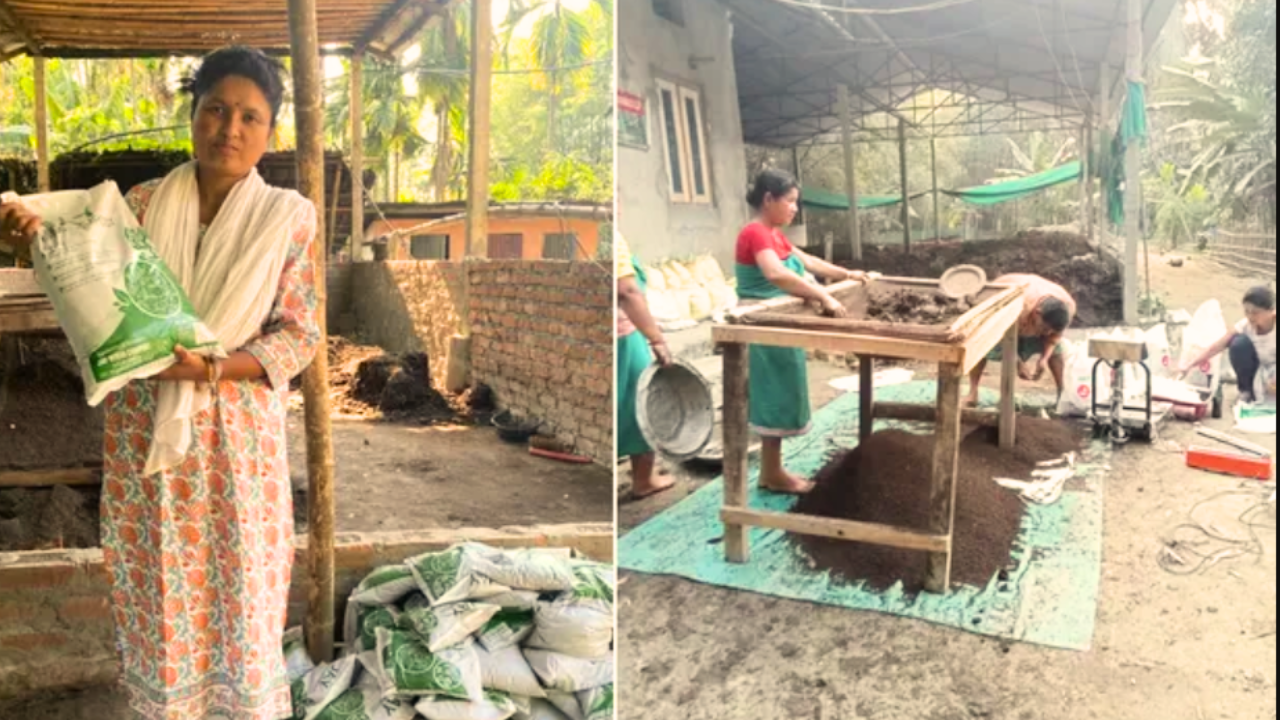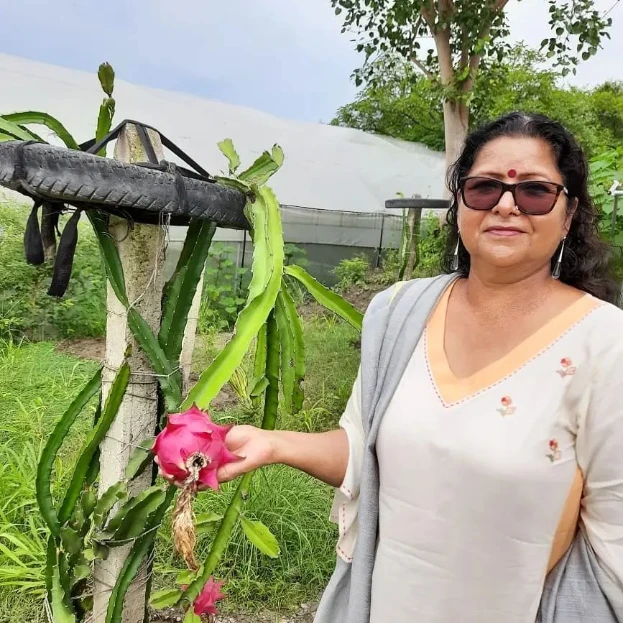After accumulating more than a decade of experience within the IT sector, Ashok J and Sriram Chitlur began strategizing for their retirement goals during their mid-30s. Eager to create an impact while maintaining a strong connection to the natural world, they embarked on a quest to identify an opportunity. In 2008, their interest was piqued by the prospect of venturing into sandalwood cultivation, particularly following the government’s decision to deregulate the sector.
Their pursuit led them to explore potential plots of land, with weekends spent traveling to rural communities to secure a suitable location. Following two years of dedicated effort, they successfully procured land and initiated the cultivation of sandalwood in Rayadurg, Andhra Pradesh. Srinath Setty (37), who later joined their endeavors in 2014 to oversee sales and customer support, says
“Ashok and Sriram possess a deep affinity for the environment. Their contemplation of retirement converged with a recognition of agriculture as a promising avenue. Their intention extended beyond mere tree cultivation; they aspired to support aspiring farmers as well.”
Starting their journey, Ashok (55) and Sriram (44) invested a significant sum of $120,000 from their personal savings. The initial seeds took root in a 30-acre parcel of Ashok’s ancestral property, marking the commencement of their sandalwood plantation. Srinath elaborated:
“With both of them engaged in full-time occupations, regular visits to the farmland were impractical. Thus, they opted for sandalwood cultivation due to its lengthy 15-year gestation period. This longer timeline offers enhanced returns. Furthermore, cultivating alternative crops poses numerous challenges involving soil suitability, fertilization, and more. Opting for sandalwood allowed them to proceed prudently while adhering to their sustainable strategy.”
Their prudent approach bore fruit as they secured a government grant amounting to $50,000 to advance modern farming practices in India. This financial support facilitated the acquisition of a private sandalwood nursery. Yet, despite their achievements, they identified a void in their efforts to foster environmental contributions. This realization sparked an idea approximately five years later: the establishment of a farmland management entity dedicated to transforming sizable land tracts into thriving farms. This approach entailed cultivating timber trees and other sub-tropical crops, tailored to landowners’ preferences, with the overarching goal of fostering enduring wealth generation and passive income through sustainable means.
In 2013, equipped with newfound insights into farming methodologies, they formalized their venture as “Hosachiguru,” a term meaning “new sprout” in Kannada. This marked the juncture when Srinath officially joined their collaborative undertaking.
Hosachiguru’s core focus lies in agro-forestry, and they offer two avenues for individuals to engage with their initiatives. Firstly, prospective buyers interested in acquiring farmland have the option to purchase directly from Hosachiguru. This can be done with the choice of independently developing the land or collaborating with the company for assistance. Secondly, individuals also have the opportunity to participate in the enhancement and management of existing farmland. This option is viable for plots that span over 50 acres and where the landowner is prepared to contribute resources to establish a commercially feasible agro-forestry venture.
This concept gained significant attention and within a mere five-year span, Hosachiguru successfully undertook 18 projects that encompass approximately 800 acres of land dedicated to the cultivation of sandalwood, mahogany, and melia dubia. The company achieves an annual turnover of 2.5 Million Dollars.
The land parcels are offered by Hosachiguru at a rate of around Rs 60-Rs 65 per square foot, and remarkably, their projects are often sold within a short timeframe of three to four months after land acquisition, sometimes even prior to the establishment of basic infrastructure. Srinath, a representative of the company, affirms this.
A substantial portion of each project involves Hosachiguru assuming the responsibility of managing the cultivated lands on behalf of their clients. Additionally, the company maintains a deliberately modest investment threshold. This approach leads to a considerable portion of initial project sales originating from repeat customers. Srinath emphasizes this accomplishment and highlights the company’s progression from cultivating a single plot of land to proficiently managing 18 projects spanning 800 acres of timberland in a relatively brief duration.
Hosachiguru has also ventured into the sale of melia dubia to a plywood manufacturer in Mysuru, utilizing farmland that is part of their holdings. The company’s founders express a specific interest in acquiring land situated in proximity to Bengaluru, and they have aspirations to expand their operations to regions like Hyderabad and Hosur in the near future. To facilitate their growth, they secured funding from Venkat Narayan, the CEO of Prestige Group.
Srinath, when discussing the revenue model, explains that their organization employs four distinct avenues for generating income. Initially, they offer parcels of land with a comprehensive setup. Secondly, they derive revenue by selling saplings cultivated within their nursery. The third approach involves establishing plantations for farm owners, accompanied by a project execution fee. Lastly, charges are imposed for the continuous upkeep and operational aspects, effectively encompassing all associated expenses. Additionally, they claim 30 percent of the produce as a success fee. Transitioning into the digital landscape of the internet era, Hosachiguru employs digital media to disseminate information regarding their diverse initiatives and offerings to their clientele. The company has established a robust asset management platform that ensures regular updates on farm activities. Employing weather stations, moisture sensors, cutting-edge drip irrigation, and automation systems across all farms, they analyze and take suitable actions concerning various farming aspects.
Through their assorted projects, Hosachiguru plays a pivotal role in mitigating atmospheric carbon. They actively enhance soil health by adhering to organic practices and promoting flora and fauna. The organization is also engaged in groundwater replenishment, operating over 10 distinct initiatives to facilitate this endeavor. Furthermore, Hosachiguru has generated employment opportunities for more than 100 local farmers, even providing housing for their families.
Srinath highlights one of the principal challenges in agriculture: the expectations of landowners in terms of returns. He states, “Farming gives a wonderful lesson in ‘patience,’ unique from the world of stock market or gold speculations. While historical patterns have demonstrated that farmland appreciation tends to outpace that of stocks or gold, the output and yields of agriculture have undergone fluctuations. Our standpoint dismisses the idea of acquiring farmland solely for the purpose of appreciation, underscoring the responsibility to cultivate trees and mitigate carbon footprints. Trees undoubtedly possess value, but their growth demands time.”. Another obstacle pertains to obtaining sizable land parcels and managing associated expenses. Unless the company secures scalable land holdings, the reduction of setup and maintenance costs remains unattainable.
Farming, in its essence, entails reverting to fundamentals and establishing a connection with nature and the environment. It demands substantial capital and features prolonged cycles, dissuading many from venturing into the field. The founders also observe that a considerable number of individuals pursue agriculture out of passion, lacking financial acumen and becoming susceptible to financial challenges.
Real estate entities with substantial resources looking to enter this domain often find themselves discouraged by the extended gestation period. The returns on invested capital fail to entice, in contrast to typical urban projects. Moreover, for those motivated by passion, financial management poses a hurdle, often leading to engagement in only one or two projects.
Hosachiguru follows a straightforward business model: avoiding debt. The company emphasizes minimal overhead costs and places a significant focus on the produce yielded by the trees they cultivate. This approach allows them to operate with slim profit margins, offering customers great value when purchasing or entrusting them to manage land. This strategy benefits customers by enabling faster potential gains, while also facilitating Hosachiguru’s rapid expansion.
Looking ahead, Srinath envisions a future where individuals can easily own and integrate their land asset into their lifestyle and long-term plans through Hosachiguru. The company aims to streamline ownership and ensure that the land remains easily marketable when customers require funds. The upcoming venture, Abhivrudhi Farms, situated on the state highway of Hindpur and a 90-minute drive from Bengaluru, encompasses 108 acres of meticulously planned wilderness enriched with 5000 mango trees. Abhivrudhi will provide an array of amenities to foster a connection with nature, including weekend homes, cottages, pre-installed hammocks, cycling tracks, reading pods, observation decks, and multi-level camping facilities.






